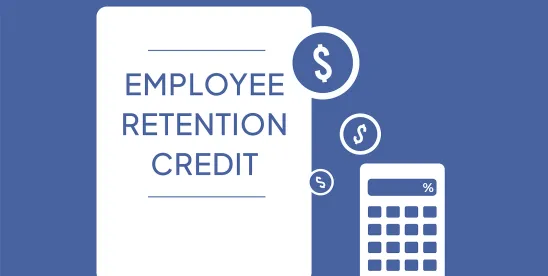Employee retention credits (ERCs) have been a critical financial lifeline for businesses dealing with the effects of COVID-19. Designed to incentivize businesses to retain employees during the economic downturn caused by COVID-19, the ERC is a refundable tax credit available to eligible employers that paid wages between March 12, 2020, and October 1, 2021 (with certain limited availability until December 31, 2021). Given the complexities involved, many businesses encounter challenges such as claim denials and delays. Identifying effective strategies to navigate these hurdles is vital for maximizing tax benefits and ensuring financial stability.
Quick Hits
- Employee retention credits (ERCs) have been a critical financial lifeline for businesses dealing with the effects of COVID-19, but due to the complexities involved, many businesses encounter challenges such as claim denials and delays.
- Qualifying for the ERC requires meeting one of three primary criteria: experiencing a full or partial suspension of operations due to governmental orders, a significant decline in gross receipts, or being a recovery startup business.
- Businesses that receive ERC denials or no response from the IRS have two primary options: filing an administrative appeal or pursuing a refund suit.
ERC Qualification and Claims Process
Qualifying for the ERC requires meeting one of three primary criteria: experiencing a full or partial suspension of operations due to governmental orders, a significant decline in gross receipts, or being a recovery startup business. Determining qualifying wages is another critical aspect of claiming the ERC. Qualifying wages encompass all wages paid to employees, including salaries, hourly wages, bonuses, and healthcare costs. The calculation of qualifying wages differs for large and small employers. This distinction significantly impacts the potential value of the credit, with small employers potentially able to claim a higher amount.
Current State of IRS Processing
The Internal Revenue Service (IRS) implemented a moratorium on processing new claims in September 2023 to combat perceived fraud. Initially set to conclude at the end of 2023, the moratorium was extended multiple times, with the resumption of processing commencing in August 2024. The IRS has categorized claims into low risk, unacceptable level of risk, and high risk, with varying levels of scrutiny and processing times. The IRS has indicated that their focus upon resuming processing will be with respect to low risk and high risk claims, which account for 20 percent to 40 percent of all claims. The remaining unacceptable level of risk claims, which account for approximately 60 to 70 percent of claims, are being processed secondarily at a judicious pace.
Options When Facing Delays and Denials
When a business receives an ERC denial or no response from the IRS, it has two primary options: filing an administrative appeal or pursuing a refund suit. The administrative appeal process involves engaging with an IRS appeals officer to negotiate a resolution. Alternatively, if a business has not received a response from the IRS within six months of filing its claim, it can sue the IRS for the refund. This legal route can expedite the resolution process.
The legal framework for pursuing a refund suit is grounded in the Internal Revenue Code. Section 7422 authorizes taxpayers to sue for refunds, provided they have made a formal claim. According to Internal Revenue Code Section 6511, businesses must wait at least six months after filing their refund claim before suing the government. If the IRS fails to respond, businesses are entitled to sue for the claimed amount plus interest, which currently stands at 8 percent and compounds daily, and potential costs.
Choosing the right court for a refund suit is another critical decision. Businesses can file their cases in either the local U.S. district court or the U.S. Court of Federal Claims in Washington, D.C. The U.S. Court of Federal Claims is often preferred due to its familiarity with tax litigation, suits against the federal government, and efficient procedures.
Key Takeaways
The rise in ERC refund suits highlights the importance of strategic legal action. Businesses may want to prepare to provide comprehensive documentation to support their claims and facilitate the U.S. Department of Justice’s review process. Early and thorough preparation can lead to quicker resolutions and minimize the need for extensive court proceedings. While the prospect of litigation may seem daunting, it can be a necessary step to secure the financial benefits businesses are entitled to.






 />i
/>i
